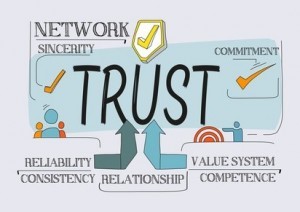In Greek mythology the Danaïdes – the fifty daughters of Danaus – were condemned to a meaningless task for their crimes: to carry water in a sieve. Attempting to interview language interpreters by clients may be equally futile, and here is why.
 A job interview is a standard hiring procedure in the modern world and it does not raise any eyebrows. Accountants, office clerks, even senior management and future company presidents go through this challenging and sometimes exhausting process.
A job interview is a standard hiring procedure in the modern world and it does not raise any eyebrows. Accountants, office clerks, even senior management and future company presidents go through this challenging and sometimes exhausting process.
Your company wants to engage an interpretation services provider and the first natural thought is: let’s have an interview with the interpreters. Reality, however, is a little bit different.
Usually interviews are conducted in a company of peers. Engineers interview other engineers, nurses other nurses, etc.: they all speak the same professional language and easily understand each other. Even professional HR managers evaluate more interpersonal skills and team work than specific technical knowledge.
 It is excellent that you may have one or more bilingual persons in your company who speak Chinese, Russian or Spanish. It does not – however – make these people interpreters and does not – with all due respect to your employees – give them sufficient expertise to judge interpreter performance.
It is excellent that you may have one or more bilingual persons in your company who speak Chinese, Russian or Spanish. It does not – however – make these people interpreters and does not – with all due respect to your employees – give them sufficient expertise to judge interpreter performance.
Difference between an interpreter and a bilingual is described well in our blog in a number of posts. To summarize: language interpretation is a separate highly specialized profession that requires years of training and speaking a foreign language qualifies you to be a professional interpreter no more than slicing a piece of raw meat qualifies you to be a surgeon.
 Harsh, but this is the reality of the profession – on top of speaking a foreign language there are other purely interpretation related skills: processing information in a particular way, advanced simultaneous and consecutive interpretation skills, note taking, general and technical knowledge, public speaking skills, among others.
Harsh, but this is the reality of the profession – on top of speaking a foreign language there are other purely interpretation related skills: processing information in a particular way, advanced simultaneous and consecutive interpretation skills, note taking, general and technical knowledge, public speaking skills, among others.
- he or she is not judged by a company of peers, bilinguals are not qualified to do it;
- it is not possible to evaluate quality of interpretation if you are not a professional interpreter yourself. After all, we do not come to a doctor’s office and grill him about medical terminology and his medical knowledge before we sit in his chair;
- quality of interpretation or of the interpreter cannot be judged from a 10 second passage hurriedly read over Skype;
- it detracts from the dignity of the profession. Some interpreters’ professional associations, for example, AIIC, the International Association of Conference Interpreters, explicitly ban interpreters from doing anything that “might bring the profession into disrepute.”
Any good interpretation services agency worthy of its name, including InterStar Translations, shall refuse any such requests for interpreters to perform interpretation over the phone.
Does it mean it makes no sense to talk to your future interpreter? Of course it does not!
 You simply need to reframe it and – instead of calling it an interview – use the time as an educational opportunity to tell the interpreter about your event, what particular communication difficulties you had in the past, what to expect during your conference where simultaneous or consecutive interpretation will be used.
You simply need to reframe it and – instead of calling it an interview – use the time as an educational opportunity to tell the interpreter about your event, what particular communication difficulties you had in the past, what to expect during your conference where simultaneous or consecutive interpretation will be used.
Interpreters are professional facilitators of communication and, maybe, could immediately suggest a few solutions you may not have thought about.
That information is priceless, because it creates context and helps conference interpreters prepare better for your event!
 It is also an excellent opportunity to learn more about the interpreter’s previous experience with your particular topic, establish rapport and see if you simply have a warm and fuzzy feeling about that person. After all, he or she will be your voice and ears and will “represent” you and your company in a foreign language.
It is also an excellent opportunity to learn more about the interpreter’s previous experience with your particular topic, establish rapport and see if you simply have a warm and fuzzy feeling about that person. After all, he or she will be your voice and ears and will “represent” you and your company in a foreign language.
A final note though: A-list professional conference interpreters receive dozens of job proposals every month and they simply cannot afford to have such conversations for free.
 It is completely at their discretion if they want to charge and how much. It only makes business sense, as a famous Russian singer Fiodor Chaliapin used to say: only birds sing for free (Даром только птички поют.)
It is completely at their discretion if they want to charge and how much. It only makes business sense, as a famous Russian singer Fiodor Chaliapin used to say: only birds sing for free (Даром только птички поют.)
And going back to the sieve: instead of interviewing interpreters, concentrate on what hiring standards and quality controls your interpretation services provider has, how A-list interpreters are selected, are professional standards and codes of ethics followed?
Top notch professional conference interpreters are always happy to help you!

